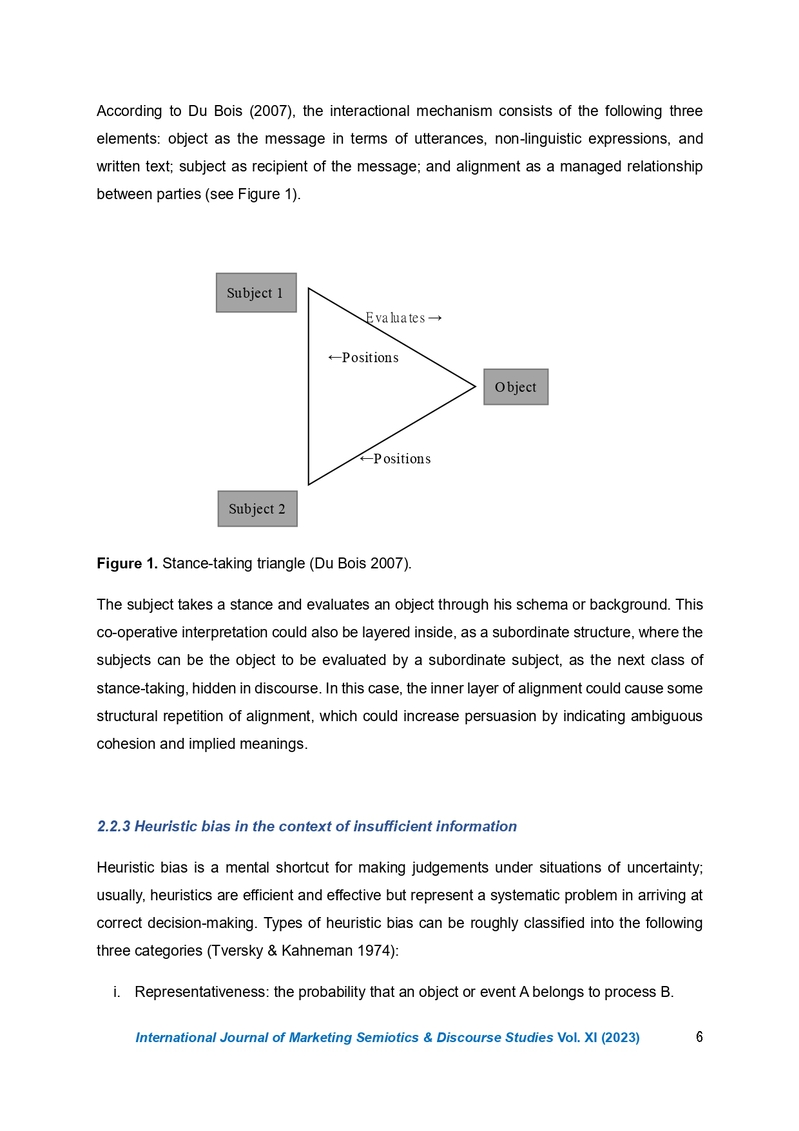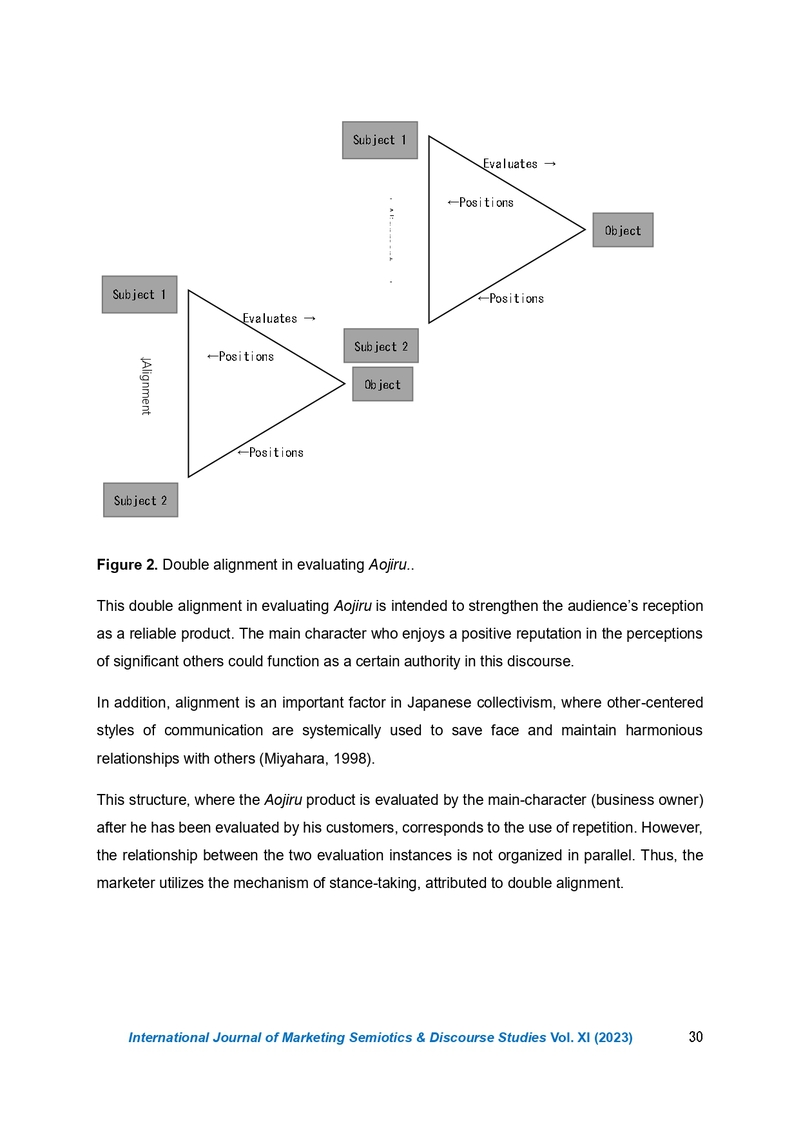Kaoru Amino (Teaching Associate Professor ) published her article entitled “Analysis of discursive strategies in Aojiru supplement commercials on Japanese TV: framing happiness through heuristic bias alignment”in International Journal of Marketing Semiotics&Discourse Studies.

Abstract
The vigorous promotion of dietary supplements such as Aojiru is visible every day in contemporary Japan. Due to regulations under the Drugs, Cosmetics and Medical Instruments Act (1960), advertising of the pharmacology or functions of dietary supplements is generally prohibited in Japan. However, advertising strategies whose aim is to lead customers to the decision of purchase may be dubious if not coupled with detailed explanations of efficacy. This research aimed to determine how dietary supplement TV commercials manage the restrictions on health food advertising.
To clarify this marketer’s strategy, transcribed data from 9 Aojiru TV commercials are analyzed, using Critical Discourse Analysis (CDA) and Sequential Analysis, with following psychological and linguistic framework, such as heuristic bias, a mental shortcut for making judgments under situations of uncertainty that includes several types of bias related to logical legitimation and statistical evidentiality.

Consequently, it can be suggested that though the stories about how the main characters overcame problems do not have any logical correlation with how they came across the Aojiru product, it may cause representativeness bias. Given the repetitively cohesive imagery in these two discourses between overcoming life problems and problems of dietary habits, this also causes other types of heuristic bias (availability of instances and misconception of chance), while the same rationale applies to several consecutive cases.

In addition, the strategies related to heuristic bias, which utilize a problem-solving rhetoric and stimulate an image of stereotypical happiness, could lead the audience to a purchase decision based on wrong criteria.
Thus, this study proposes an amendment to the current domestic guidelines for health supplements and foods, and raises consumer consciousness and literacy to help the public cope with sophisticated marketing strategies.
